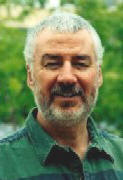|
News & Views item - October 2005 |
When
it Comes to Upping ASIO's Security Capability, Could Outsourcing be the Answer?
(October 17, 2005)
 The Prime Minister, John Howard, has announced his intention
to nearly double the number of staff at the Australian Security and Intelligence
Organisation (ASIO) from 1,000 to 1,900 by 2010 in order to counter threats of
terrorism spawned within Australia as well as externally.
The Prime Minister, John Howard, has announced his intention
to nearly double the number of staff at the Australian Security and Intelligence
Organisation (ASIO) from 1,000 to 1,900 by 2010 in order to counter threats of
terrorism spawned within Australia as well as externally.
But there seems there may be a problem.
Michael McKinley, Senior Lecturer in International Relations at the Australian National University with research interests in Strategic Studies, Australian foreign policy and regional security believes that the lack of university graduates of sufficient quality will make it difficult if not impossible to achieve the numbers.
Dr McKinley told the ABC, "[T]he current university system... is producing graduates of lesser analytical capability in the area of political science and international relations," and added that ASIO needs experts with backgrounds in politics, sociology and the economic concerns that underpin terrorism. "It's not just in the area of terrorism studies that it needs to be addressed but as many people have been pointing out - and as the Government keeps denying - the standard quality of graduate which is coming out of the Australian universities now is ... markedly less than it was say 10 or 12 years ago."
Dr McKinley concluded that with adequately increasing resources for universities the problem can be overcome, but gave no estimate on how long it might take.
[Note added October 26]
e in The Australian's Higher Education Section reports that Dr McKinley told him that graduates hoping for a career in the security services needed analytical skills, which weren't on offer in any degree short of a five-year course including a year of masters by research. "You need to be very competent in the area of society and politics and you need to be able to embed your analysis in that. You need to have this deep knowledge of society and culture, politics and international politics and then into that you put your study of terrorism and counter terrorism. To do it any other way involves an incomplete understanding and you start acquiring your knowledge opportunistically and that's a recipe for disaster."
Dr McKinley added that cost cutting has meant that universities had to take a broad approach: "The smorgasbord is popular, [and] there is a flow-on effect to our honours students ... it's not that they're stupid, it's just that they're less prepared [and] this is knocking on into PhDs as well. [The security agencies] need people who are capable of conducting quite high-level research using information which frequently is contested and ambiguous. I don't believe that that skill level is available."
As to courses that are being offered in terrorism and counter terrorism he was scathing and opined that some academics were in the same vein as the "various think tanks and consultants [that had] suddenly emerged since 9/11. Many of these people are unknown in the field and some, indeed, are charlatans."
He told O'Keefe that a security risk to the nation was "one of the consequences which arises; we simply don't have the resources when we need them and that's because of structural problems in tertiary education".
Not to put to fine a point on it may Dr McKinley's assessment be interpreted that quite apart from any other considerations the government's squeezing of the tertiary higher education sector is seriously affecting the nations ability to deal with terrorist threats and it's going to take some time and the allocation of significant resources to repair the damage.
However, judging from past behaviour it's probable that John Howard will simply go into denial.
|
|
|
|